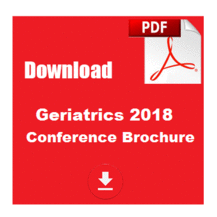
Nina Gorshunova
Kursk State Medical University, Russia
Title: Criteria of physical and cognitive frailty of older persons as determinants of their high need for palliative care
Biography
Biography: Nina Gorshunova
Abstract
The progression of involutive changes in older people is accompanied by the development of polyfunctional deficiency leading to the appearance of physical and cognitive frailty, limitations of life activity (reduced self-service abilities, independent movement). To determine the older people needs in medico-social care, a comprehensive geriatric evaluation of 417 people older than 80 years was performed, with the expression of osteopenia and sarcopenia, decreased muscle strength and walking pace, attention and memory. The assessment of physical frailty is performed by the dynamometry, muscle and bone mass by bioimpedance analysis, cognitive functions on the Montreal scale (MoCA), psychological disorders - on the geriatric depression scale. The possibility of self-service is determined using the Barthel and Katz scales, preserving the skills of instrumental daily activity on the Lawton-Brody scale. It has been established that in patients over 80 years the severity of muscle mass, its strength, bone reduction, limitations of self-service and
movement depend on the age and degree of functional insufficiency. Markers of cognitive frailty: Reduction of visual, constructive skills and memory with an increase of depression is significant in 45% of patients. It is revealed that about 70% of them need in social assistance, 52% in rehabilitation, 44% in psychological support and 35% in palliative care. Older people with physical pre-frailty to prevent the development of self-care restrictions and self-movement should recommend a diet rich in high-grade proteins, regular isometric exercise under the control of heart rate and blood pressure. Patients with predementia cognitive disorders can be recommended training programs aimed at activating attention, memory and perception. Immobile patients are shown therapeutic exercises, timely prophylaxis of bedsores. Palliative care programs are developed by general practitioners and implemented under their supervision by nurses. The importance of developing clinical recommendations for differentiated provision of palliative care is highly significant.

